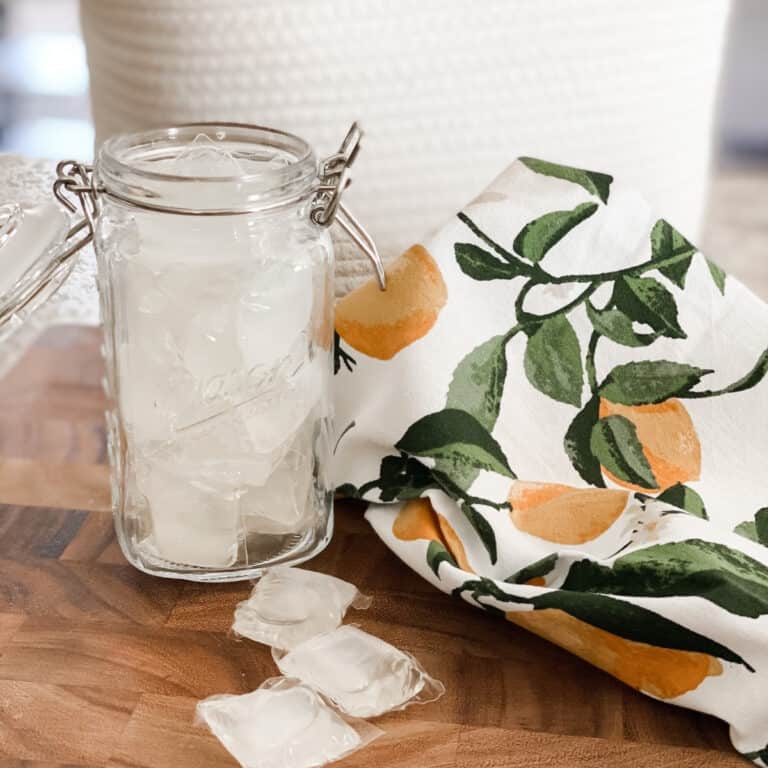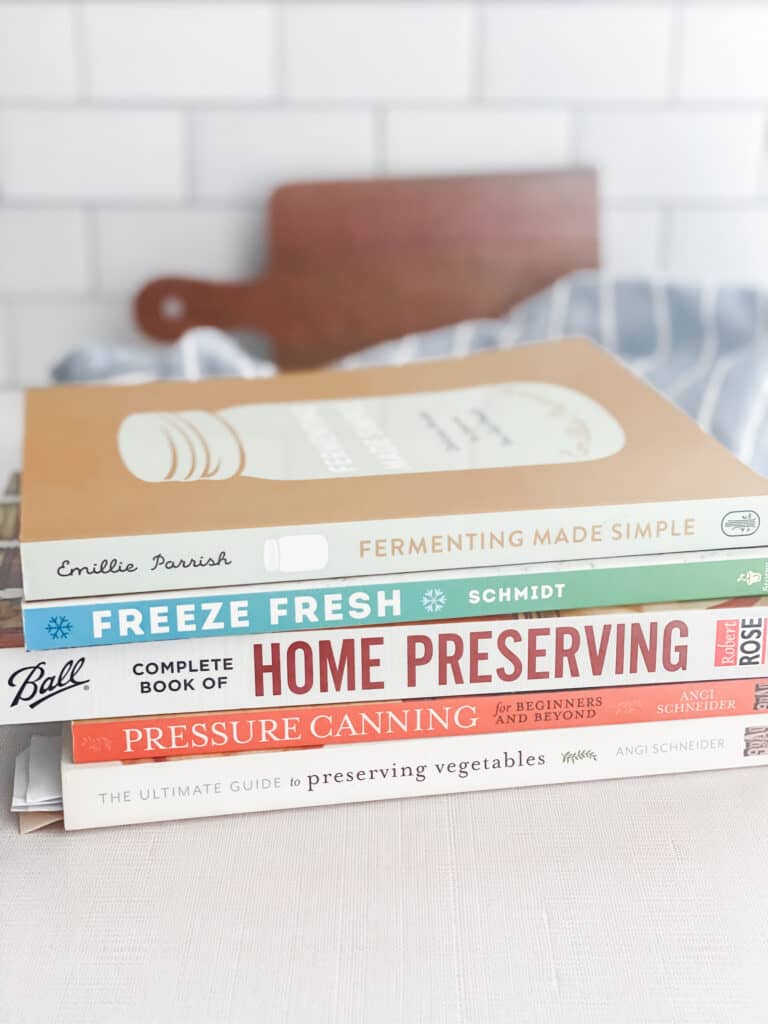7 Easy Ways to Reduce Food Waste at Home
Do you struggle with using up food before it goes bad? Here are 7 easy ways to reduce food waste at home.
Some of us like to disguise our food waste habits with an ‘out of sight, out of mind’ perspective. Similar to other forms of waste, however, the food we throw away is causing big problems for the planet.
Food impacts our health and wellness. It is a part of family traditions and cultural celebrations. Food brings people together. But, more and more we are throwing out food at an alarming rate.
But, the good news is that reducing food waste at home can have a big impact on the environment. By adopting a few daily habits, you can play a huge role in reducing the amount of food sent to landfills.
Not to mention, you will save money in the process.
Why Eliminate Food Waste
Mindless food consumption wastes more than just the food being thrown out. That’s because food is an end result of many processes utilizing a variety of resources.
In order to change our habits, we must look at what really happens when we throw a little food away here and there that eventually creates a huge problem.
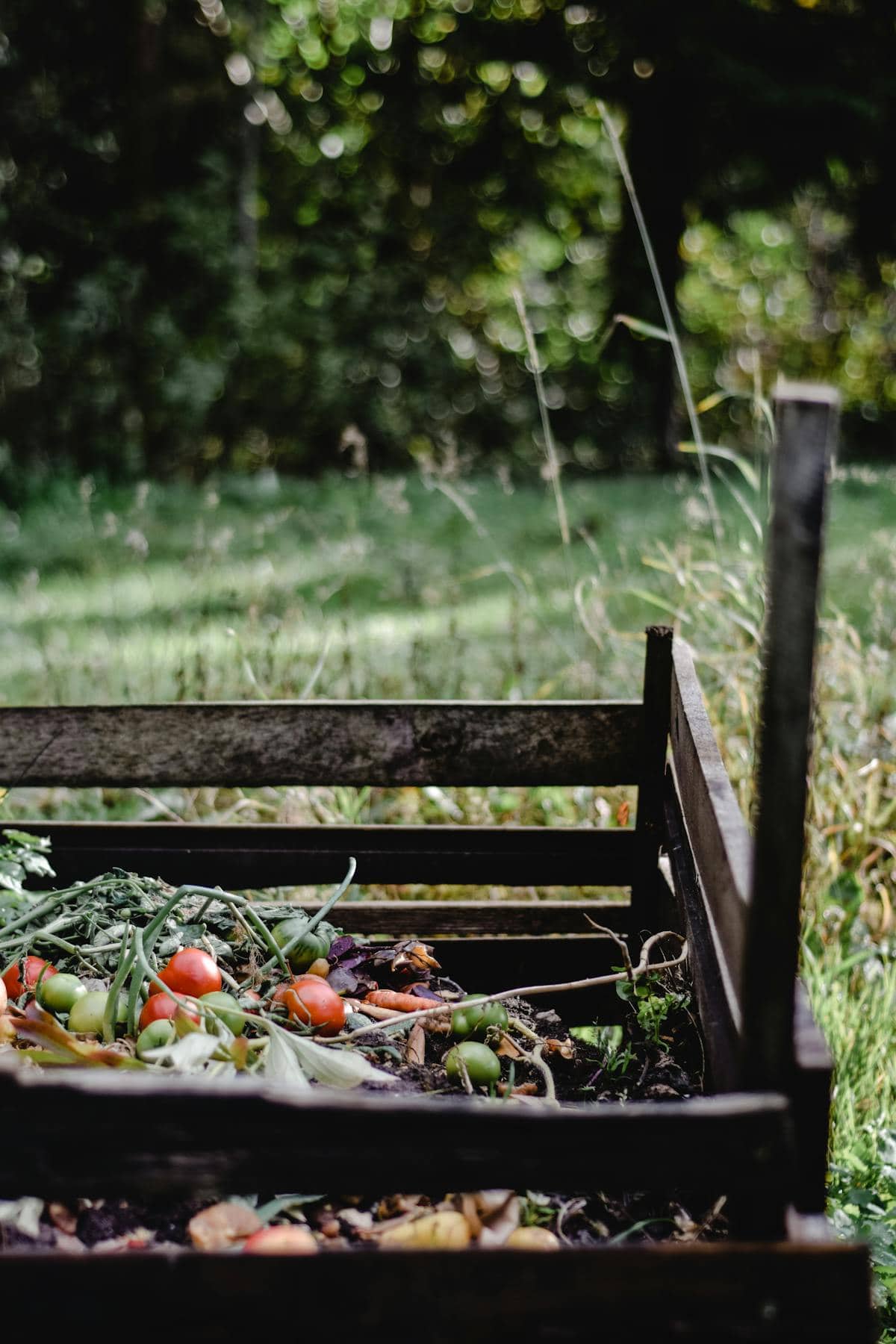
Landfill Overflow
Our scraps, spoiled food, and leftovers don’t just disappear. They collect in a landfill where they sit and rot. An estimated 133 billion pounds of food waste collects in landfills in the US every year.(1)
Wasted Resources
The food you eat is grown or created using resources like land and water. When food is thrown away resources that went into creating that food are also wasted.
Decreases Biodiversity
As more food is purchased, the demand for food increases. This means more land and resources are needed to create that food – even though a portion of what’s already been created is thrown away.
The more land we take for growing food, the less there is for natural ecosystems to thrive.
Money Down the Drain
Not only is food waste bad for the environment, but it is also impacts your finances.
This report from the National Resource Defense Council (NRDC) estimates that the average American family throws away $2,200 worth of food every year. (I can think of several things I’d rather spend $2,000 on!)
This all seems grim, but there are ways you can practice mindfully consuming food to reduce food waste at home.
With a little extra attention, you can make a huge impact on the amount of food wasted – and in the process save money for your family.
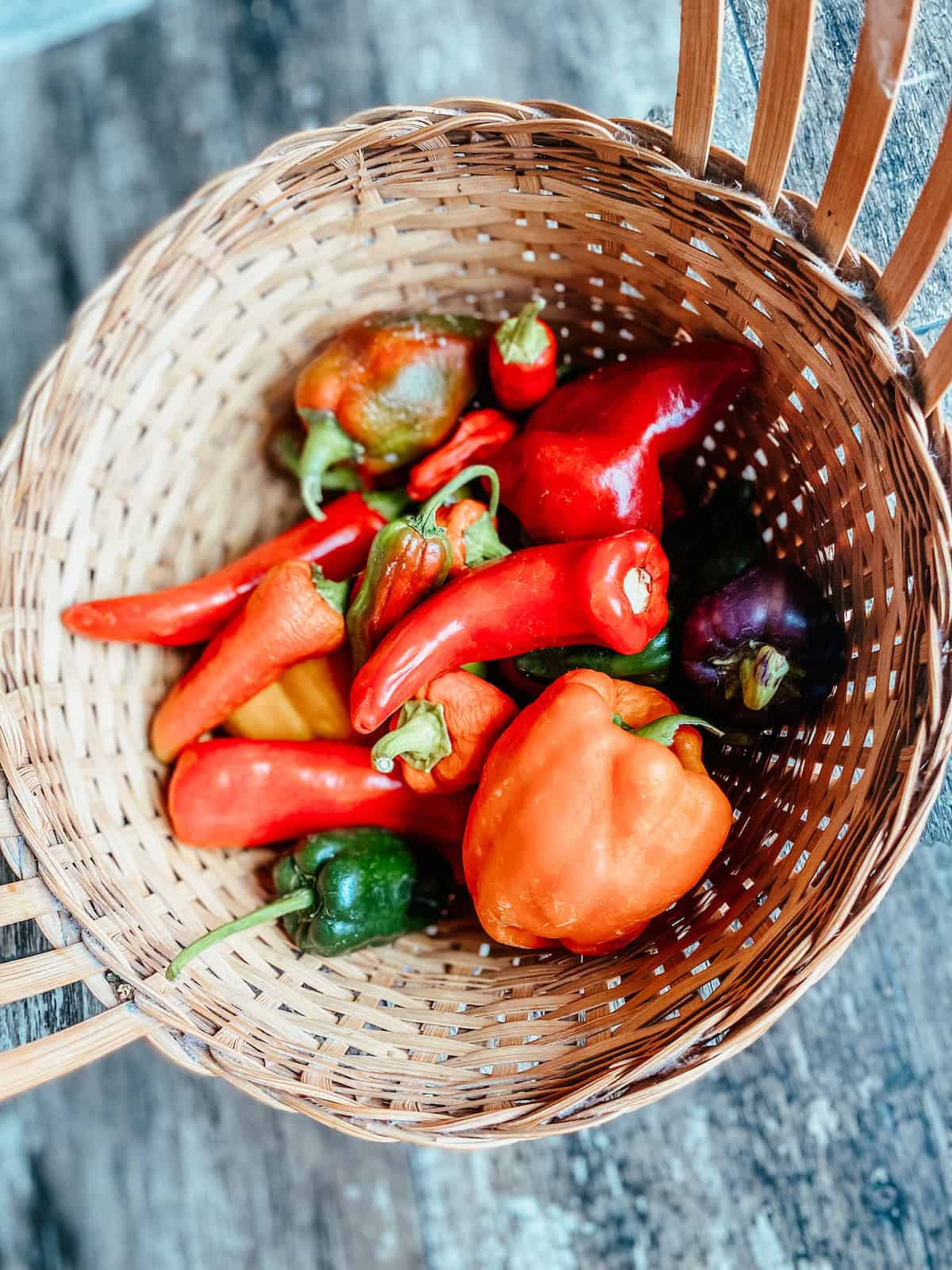
7 Ways to Reduce Food Waste at Home
The key to reducing food waste at home is to practice mindful living day-in and day-out. Don’t strive for perfection. Instead, develop these daily habits that will make food waste a rare occurrence in your home.
Make Lists and Meal Plans
When hitting the grocery store, be prepared. Having a well-thought out list will not only help you stay within your budget, but also prevent you from buying more than what you need.
Make a simple meal plan for the week, and put specific measurements on your grocery list. This will prevent you from having to guess how much you really need for each recipe.
I like to write out my meals in a planner so I can see what other things I’m doing that day. If it is a busy night, I know I need something simple to make or I will end up skipping the homemade meal for take out.
If meal planning sounds too daunting, you can find a variety of online meal planning services that will provide you with a grocery list and meal planning calendar without much work on your part.
Wash and Prep for Easy Eating
As soon as you get home from the store, plan to wash, chop, and prepare fresh fruits and vegetables, rather than throwing them straight in the fridge.
It will be easier to reach for an apple or strawberries as a snack later if you clean them beforehand.
This is also a great way to save time on meal preparation during the week. Chop and measure out ingredients on the weekends or nights when you have more time in the evenings.
This makes cooking healthy after a long day of work much more attainable.
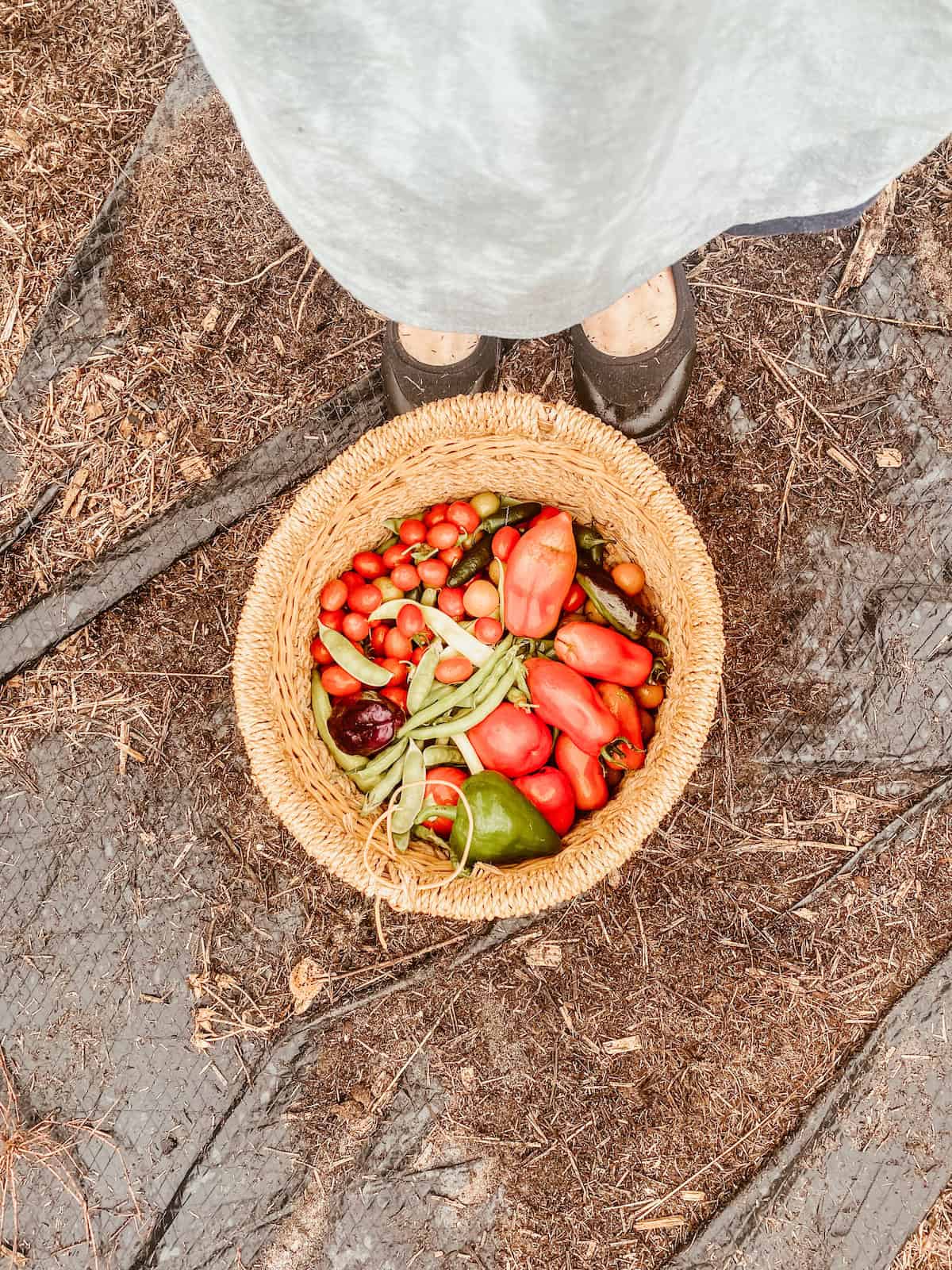
Use the Scraps
Did you know you can turn seeds, stems, and even rinds into delicious recipes? Creating a habit of using all edible parts is a rewarding way to create less waste.
Start with a cookbook like Lindsey Jean-Hard’s Cooking with Scraps for inspiration. Soon, you’ll discover new ways to add scraps to your family meals – another great money saver!
Lighten Up on Expiration Dates
Most of us don’t understand expiration dates. Descriptions like “use by,” “expires on,” or “best if used by” makes determining the shelf-life of food challenging.
Obviously, you shouldn’t eat foods that have spoiled. Foods like cheese and deli meats are at a higher risk of being contaminated with food-borne bacteria after a certain length of time.
But, just because your carton of milk says “sell by … “ doesn’t mean you need to toss it out on or after that date.
Check the smell and texture of the milk before dumping it all down the drain. These phrases generally tell you when a food item might begin to lose quality, and not necessarily when it becomes unsafe to consume.
Take Smaller, More Frequent Trips to the Store
Many people buy in bulk to prevent having to go back to the store so soon. Food items bought in bulk only saves you time and money, but only if you eat the food before it spoils.
Granola bars, nuts and seeds, and other prepackaged items can be bought in bulk. Fresh fruits and vegetables, breads, and meats and cheeses won’t last as long.
Plan to make more frequent trips to the store to purchase these items – or better yet, regularly visit a farmer’s market to support your local farmers for fresh produce.
What if a grocery store isn’t just around the corner? Try one of these online natural grocery stores.
Food Preservation Tips
Learning proper food preservation techniques is a great way to reduce food waste at home while never running out of ingredients for a quick meal.
Canning
You will find a variety of canned fruits, vegetables, jams, sauces, soups and even eggs at a farmer’s markets.
And these days, you can find canning kits at grocery stores or farm and home stores if you want to learn the art of canning for yourself.
Dehydrating
This is my favorite method of food preservation! Dehydrating meat, fruits, vegetables, and herbs will give you a real sense of sustainability.
Dehydrated snacks make nutritious options for road trips and hiking adventures.
Freezing
There is no better feeling than reaching in the freezer to grab leftovers after a long day at work. Keeping my family healthy while working outside the home can be a challenge.
But preparing leftovers to go in the freezer makes life so much easier.
Making extra servings to freeze for later is a fantastic way to save time, money, and reduce food waste.
New to food preservation? This food preservation for beginner’s post has great resources and ideas on how to get started.
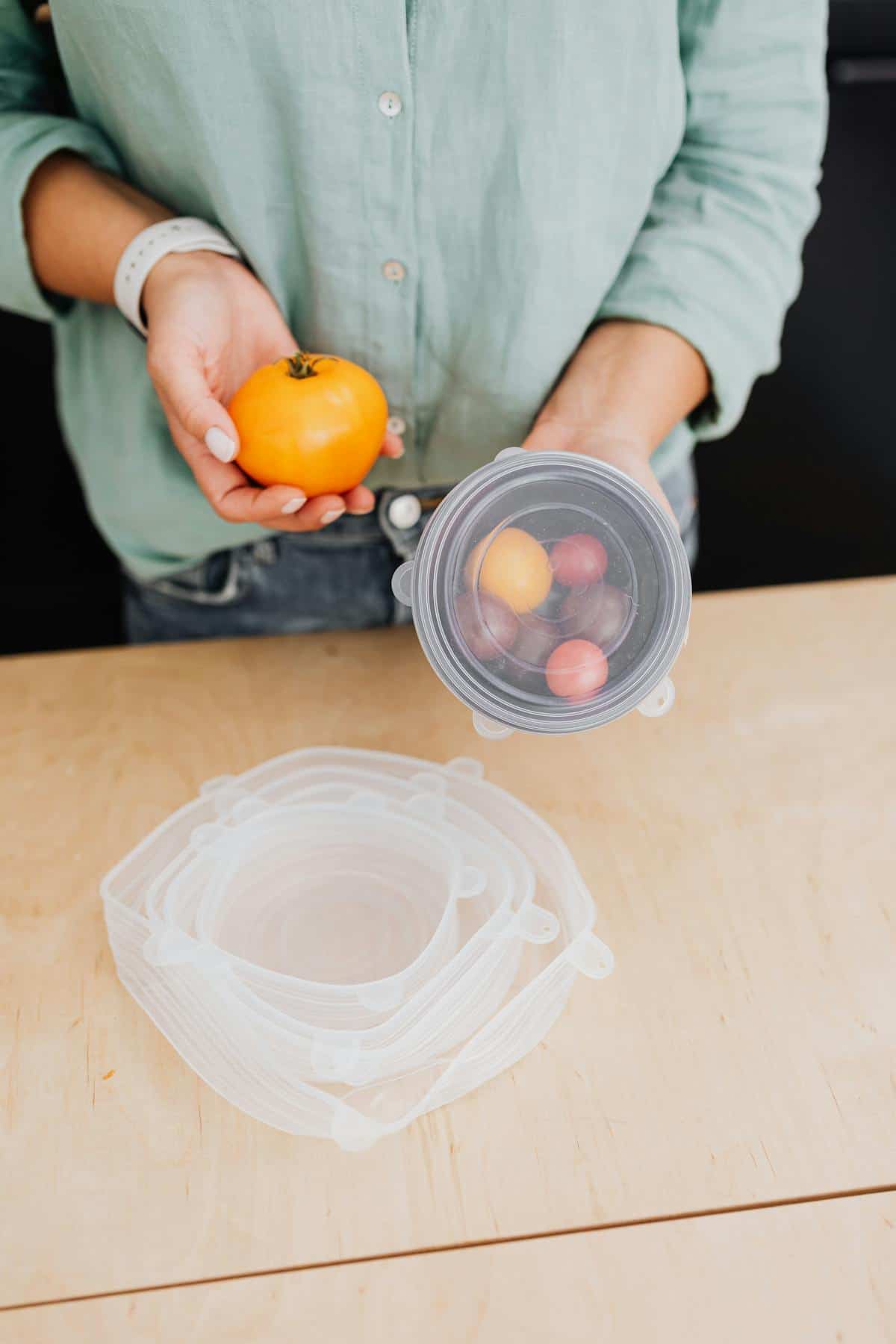
Learn to Compost
Learning the ins and outs of composting is easy and an effective way to prevent food from ending up in a landfill. You don’t need a huge plot of and to compost.
If you need help getting started, check out this helpful post with tips for beginners.
Not only does composting help reduce food waste from sitting in a landfill, but you also end up with this organic material that grow beautiful flowers and healthy vegetables when added to your garden.
Food waste plays a larger role in many of today’s problems. It affects the environment, plus it’s hard on your wallet.
But, you can make a big impact on the environment and save money by reducing your family’s food waste.
Small Steps Matter
It’s time for a change, and that change can begin with you! We can’t continue with an ‘out of sight, out of mind’ perspective when it comes to things we throw away – and especially not our food.
A conscious awareness of food (where it comes from, how it’s grown, how much you really need, etc.) is a much more compassionate way of living than just buying and throwing away without much thought.
The small steps you take to reduce food waste at home can make a big impact. One day turns into two, and then three.
Soon you realize you have been reducing food waste for a year or longer. That’s a lot of food, precious resources, and money NOT wasted!
Which food waste reducing habits will you start with today?

